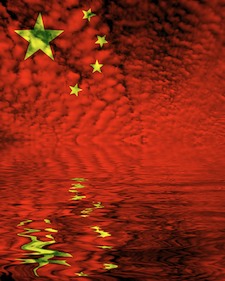Every nation should have independent authority over its own Internet, Chinese President Xi Jinping said Wednesday, telling a government-organized conference that “freedom and order” are both necessary in cyberspace.
Rights campaigners have denounced the World Internet Conference as part of China’s push to sell its idea of “Internet sovereignty”, a concept at odds with a vision of the network as an open global resource.
“We should respect the rights of individual countries to govern their own cyberspace,” Xi said in a half-hour speech opening the second forum, whose version last year was greeted with derision by activists who questioned China’s motives.
“No country should pursue cyber hegemony or interfere in other countries’ internal affairs,” he added.
 China censors online content it deems to be politically sensitive, while blocking some Western websites and the services of Internet giants including Facebook, Twitter and Google.
China censors online content it deems to be politically sensitive, while blocking some Western websites and the services of Internet giants including Facebook, Twitter and Google.
Despite the block, participants at the conference were given unfettered access to sites denied to the rest of the country.
The policy is one facet of Beijing’s strict limits on freedom of expression. Rights groups say it uses state security as a pretext to crack down on political dissent.
“Like in the real world, freedom and order are both necessary in cyberspace: freedom is what order is meant for, and order is the guarantee for freedom,” Xi said.
“We should use moral teachings in guiding the use of the Internet,” he added, adding that China’s online presence should strive for a more positive and “uplifting” image.
Amnesty International has condemned China’s use of vaguely worded laws to “arbitrarily target individuals for solely exercising their right to freedom of expression online”.
Hundreds have been jailed on such charges.
Two days before Xi took to the podium, Pu Zhiqiang, one of China’s most celebrated human rights lawyers, stood trial over just seven microblog posts critical of the ruling Communist Party that could earn him up to eight years behind bars.
“Under the guise of sovereignty and security, the Chinese authorities are trying to rewrite the rules of the Internet so censorship and surveillance become the norm everywhere,” said Roseann Rife, East Asia research director at Amnesty International. “
This is an all-out assault on Internet freedoms,” she added.
– ‘Realm of control’ –
The three-day conference in the small eastern town of Wuzhen was attended by a handful of high-profile figures from nations that have been criticized for their records on freedom of speech, including Pakistan’s Prime Minister Nawaz Sharif and Russia’s Dmitry Medvedev.
Senior executives of companies such as Microsoft, IBM and Apple as well as China’s largest Internet companies were also present.
On the sidelines of the conference, Robin Li, chief executive of Baidu, China’s largest search engine, admitted the decision on whether to display results for censored websites such as Facebook and Twitter on his company’s search engine was simply beyond its remit.
“This is completely outside of Baidu’s realm of control — the websites that Chinese netizens can access are decided on by China’s government and law,” Li told AFP. “Baidu is just the tool that offers netizens what they can see.”
Google terminated most of its mainland operations in 2010 after a dispute with the government over censorship and allegations of cyberattacks.
An October report by the American pro-democracy think tank Freedom House found that China has the most restrictive Internet policies of 65 countries studied, ranking below Iran and Syria.
Nonetheless companies such as LinkedIn have agreed to censor their content in exchange for access to the country, while Facebook and other banned companies have lined up to offer the hand of friendship to China’s top leaders.
When Xi visited the US in September, China’s cyber czar Lu Wei appeared along with the head of state in the front row of a “family photo” of America’s tech giants, including Amazon’s Jeff Bezos and Facebook’s Mark Zuckerberg.














